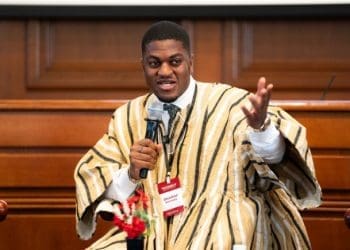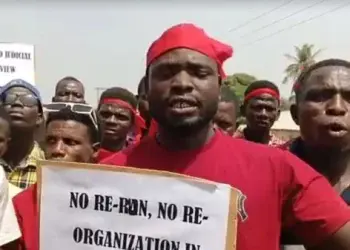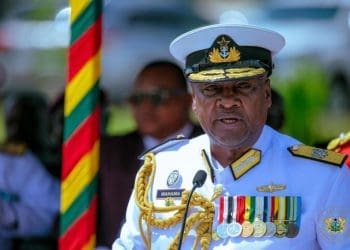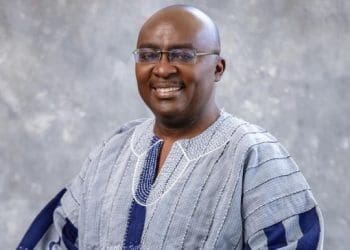Three of Ghana’s most influential voices — His Eminence Cardinal Peter Kodwo Appiah Turkson, President John Dramani Mahama, and Archbishop Nicholas Duncan-Williams — delivered powerful and complementary messages that converged on a central theme: Ghana must rise above individualism, deepen its moral leadership, and forge a collective path toward peace, prosperity, and national integrity.
Each speaker, in distinct yet harmonised tones, underscored the importance of the common good, accountable leadership, and the creation of an equitable and self-reliant society—with a clarion call to put Ghana first and renew the social contract between leaders and the people.
The shared message across the podiums was clear: Ghana must reject selfishness, strengthen its values, and build a future that works for all—rooted in justice, prayer, and purpose.
They made these calls at the maiden National Day of Prayer and Thanksgiving held at the State House on Tuesday, July 1, 2025.
Cardinal Turkson
Delivering the homily at the interfaith gathering, Cardinal Peter Kodwo Appiah Turkson, Chancellor of the Pontifical Academy of Sciences, called for responsible stewardship of Ghana’s abundant natural wealth, urging that it be managed not for personal enrichment but for the benefit of all.
He stressed that the pursuit of the common good must be regulated to prevent it from being hijacked by selfish interests. “The pursuit of the common good requires regulation, which members of the community will have to abide by. Otherwise, the common good fails to serve the need of the commons,” he warned.

Cardinal Turkson lamented the widespread effects of unrestrained personal ambition and unchecked individualism, stating: “We cannot allow individual interest and personal gains to cause negative externalities for all of us.”
Reflecting on Ghana’s natural blessings, he said: “We live on a land with a lot of endowments and riches. The wealth of this land and everything that exists here are for Ghanaians. They must serve the common needs and purposes of all.”
President Mahama
President John Dramani Mahama, addressing the gathering, made a passionate appeal for Ghanaians to protect the country’s peace and unity, which he described as “an oasis” in a region rife with instability.
“This peace must not be taken for granted,” he cautioned, warning against tribalism, religious intolerance, and political hostility.
He credited the enduring peace not solely to governance but to the spiritual vigilance of the country’s faith community.
“This peace we enjoy is not simply the product of sound policy or political will. It is the result of prayer… It is the fruit of faithful believers who have interceded persistently for the soul of our nation,” he said.
President Mahama called for a recommitment to the values of honesty, sacrifice, and compassion, noting that Ghana’s strength lies not in might, but in its virtues: “The true power of our country, Ghana, resides in these quiet strengths.”
He went further to stress the moral demands of leadership, asserting that no public officeholder, including the President, is above the law.
“Public office is not a privilege for personal gain. It is a sacred trust bestowed by the people and a responsibility to serve all, especially the most vulnerable,” he declared.
“Even the Office of the President… is not above the law,” he emphasised.
“Leadership must be grounded in justice and honesty and the reverence of God.”
Duncan-Williams
Echoing the theme of national renewal, Archbishop Nicholas Duncan-Williams, Founder of Action Chapel International, offered a bold vision for a future where Ghanaians no longer seek salvation abroad.
“I look forward in my lifetime to see a new Ghana — a Ghana where our sons and daughters will not line up in any embassy for visas to travel out for greener pastures,” he said, drawing loud applause.

He imagined a Ghana where citizens are born, educated, and empowered to thrive at home, only travelling abroad for leisure—not survival.
“They will live and work and flourish and thrive within the borders of Ghana,” he added.
His remarks struck a chord in a nation grappling with youth unemployment, brain drain, and deepening migration pressures. For Duncan-Williams, reversing this tide will require strategic leadership and renewed faith in the promise of the nation.
A united call for renewal
The National Day of Prayer and Thanksgiving—commemorating Ghana’s Republic Day—brought together a cross-section of political, religious, and civil society leaders.
The event served as a spiritual checkpoint for a nation preparing for crucial elections and confronting economic recovery.












